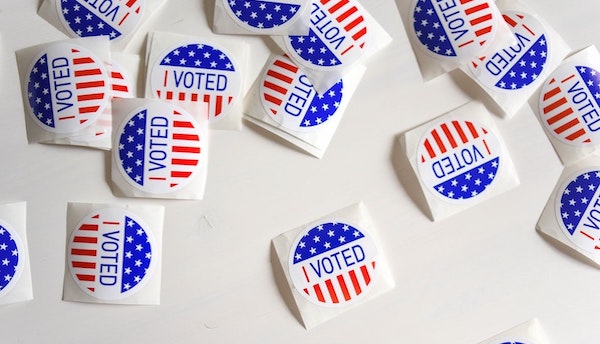Instead of asking, “Is there a reason to do this online?” we’ll be asking, “Is there any good reason to do this in person?” That’s why campaigns should start readjusting their operations already now.
Running a successful political campaign in this new environment requires candidates to rethink their communications channels and adopt new technologies. It pays off to invest the time and effort now so that candidates can build long-term relationships and get out the vote in November.
New Tools for Success
Communicating Virtually
Voters are not as receptive to traditional messaging when they are preoccupied with the spread of COVID-19 and worried about what it means for their family and livelihood. Candidates should reevaluate their messaging and communications channels. Instead of relying solely on passive communications like email, social media, contact forms, etc. with traditional campaign pitches and platforms, they should switch to a proactive approach by reaching out directly and checking in on voters. Now is the time to ask voters how they are doing, offering to help them, and ask for their vote later. Candidates should also limit their fundraising pitches and take into consideration that not everybody is able to donate right now. However, people still want to see change in the county and are looking for new leadership.
Text Messaging
Text messages get read even when people are ignoring phone calls and emails. However, most campaigns use text as a broadcast medium opposed to a relationship building or digital organizing tool. Text is currently one of the most engaging digital programs. DIA’s programs have had engagement rates of 35-40% beating even the most well run canvass programs. To get this engagement rate, campaigns should use this tool to build relationships with voters. This is a two way communications tool and should be used as such. Instead of just sharing information about your campaign, ask voters how they are doing and what are the biggest issues in their communities. Follow up with voters and keep them engaged for example by inviting them to participate in your live Q&A or online house party.
Digital Advertising
Digital advertising provides candidates the opportunity to reach a broader audience, get their message out fast, and build relationships with voters. Digital advertising is one of the only passive/broadcast media that allows you to overlap audiences and specifically target the same individuals you are targeting with other tactics. With a sophisticated and true funnel of engagement, you can maximize the impact of all tactics while building a relationship and eventual support among your targeted voters.
Online House Parties
When people are practicing social distancing and all social gatherings of 10 or more people should be avoided, traditional house parties are not an option. However, candidates can turn physical events into virtual ones that allow people to participate from the comfort of their own home. Candidates can use multiple online tools, like Zoom, Facetime, BlueJeans, Skype, or Google Hangouts to set up an online house party. These events allow for a more intimate environment for conversations between the candidate and select voters.
Live Q&A
The current situation is a great opportunity to take traditional meet and greets and coffee chats online. It is important to create relationships now and let voters know that you are available to them and ready to hear their concerns in the middle of this crisis. Candidates can easily set up a live Q&A session for example on their Facebook or Instagram page or alternatively use video conferencing systems, like Zoom and BlueJeans. Live Q&A requires a moderator who can moderate the questions and help candidates to answer the most relevant ones. Some of the best practices include giving people clear instructions on how to ask questions, having a few questions written down so that you can get the session started smoothly, and drafting answers to questions you can anticipate in advance.
Keeping campaign volunteers engaged virtually
Last but certainly not least, candidates should consider how to keep their team and volunteers engaged virtually. All team members should have remote access to important information and shared documents, conference calls, and chat rooms to make collaboration more seamless. We recommend establishing regular check-ins, setting clear rules of engagement, letting people know what is the best time and method to reach the candidate, and making sure people have some time also for social interaction.
Remote phone banking
Most phone banking systems allow volunteers to access them remotely so that people don’t have to sit in the same room when they are talking with voters. To make the remote phone banks a success, all volunteers should have a reliable data/internet connection as well as clear instructions and a script to follow.
Collaborative environments
Different collaborative environments are a great alternative for meet and greets and coffee chats. Candidates can engage with voters and share information about their campaign in a closed environment. However, candidates should take into consideration that forums like a closed Facebook Group require a lot of management and an engaged moderator.
Reach out if you have any questions about utilizing these tools and strategies!



